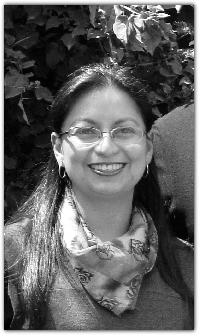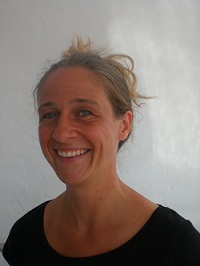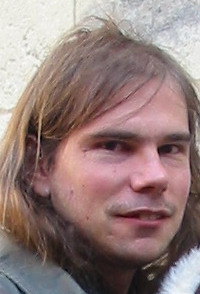| Pages in topic: [1 2] > | "How I Learn Languages" - a must read for all aspiring linguists Thread poster: Csaba Ban
|
|---|
Csaba Ban 
Hungary
Local time: 12:02
Member (2002)
English to Hungarian
+ ...
Dear Colleagues,
I just found this gem that I'd like to share with you. Kató Lomb, "possibly the most accomplished polyglot in the world" was born a little over 100 years ago (1909-2003).
In addition to her native Hungarian, she had 16 (yes, sixteen) working languages (Bulgarian, Chinese, Danish, English, French, German, Hebrew, Italian, Japanese, Latin, Polish, Romanian, Russian, Slovak, Spanish, Ukrainian).
All of these languages she learned by hersel... See more Dear Colleagues,
I just found this gem that I'd like to share with you. Kató Lomb, "possibly the most accomplished polyglot in the world" was born a little over 100 years ago (1909-2003).
In addition to her native Hungarian, she had 16 (yes, sixteen) working languages (Bulgarian, Chinese, Danish, English, French, German, Hebrew, Italian, Japanese, Latin, Polish, Romanian, Russian, Slovak, Spanish, Ukrainian).
All of these languages she learned by herself. She was not a linguist by profession, as she earned her degree in chemistry. But in the Great Depression this did not prove too useful, so she started learning English with the intention of giving private lessons.
Her book is full of practical advice on learning languages on one's own. The narrative is lively and peppered with riveting personal stories.
One of her famous stories, for example, is the way she learned Russian. She started in 1941 (when nobody was quite sure about the eventual outcome of WWII), end perfected it in 1944 in a communal bomb shelter in Budapest. She asked a bookbinder friend to bind sections of Gogol's Dead Souls into some encyclopedia - after all, she did not want to appear as a spy. When her part of the town was finally liberated, she greeted the Russian officer in Russian, but using a wrong accent. She never knew the "e" character had two different possible pronunciations until she actually met a native speaker. Anyway, within days she was working as an interpreter at the City Hall, as she had already mastered English and French before the war, and now her Russian came in handy.
She wrote her famous book, "How I learn languages", in 1970, which came out in several editions in subsequent years. In my teens years I read it like 10 times, I can still cite full passages from it. I saw her once in the 80's when she gave a lecture in our school.
Now I found the full text of the English translation in pdf.
http://tesl-ej.org/ej45/tesl-ej.ej45.fr1.pdf
Russian translation:
http://linguists.narod.ru/books/KatoLomb.zip
Kató Lomb on Wikipedia:
http://en.wikipedia.org/wiki/Kató_Lomb
One of her favourite mottoes was that a foreign language is the only thing that's worth knowing even to a little extent.
Csaba ▲ Collapse
| | | | Claire C
Netherlands
Local time: 12:02
English to French
+ ...
Oh that sounds great; thanks for sharing this with us
| | | | | Very interesting! | Apr 10, 2009 |
Csaba,
Thanks for sharing about this book! It got here right on time for me since I´m starting a thesis project about a topic related to linguistics, so the information in the book, which I downloaded and have been briefly scanning, is very useful for me, and interesting too, of course.
Thanks a lot.
Happy Easter,
Elena
| | | | inmb 
Local time: 12:02
English to Polish
+ ...
| What a wonderful Easter read! | Apr 10, 2009 |
What a wonderful Easter read! I am going to print it tonight and enjoy it throughout the Easter break.
Thanks Csaba and Happy Easter!
Mariusz
| | |
|
|
|
Patricia Rosas 
United States
Local time: 03:02
Spanish to English
+ ...
In memoriam | thank you so much for sharing! | Apr 10, 2009 |
Just read a couple of pages and it is delightful!!
| | | | Trinh Do 
Australia
Member (2007)
English to Vietnamese
+ ...
| Thank you so much for the resource | Apr 11, 2009 |
Cesa Lomb is a real inspiration for us; it's a pity I didn't get to know her. I must try to learn as many languages - or maybe half - as much as she does.
Happy Easter.
| | | | Ted Lai 
Hong Kong
Local time: 18:02
Italian to Chinese
+ ...
| Thanks. A good book it is | Apr 11, 2009 |
Her book is just fantastic and must be an inspiration for every translator.
Thanks you recommending s the book.
Happy Easter~!
| | | | seraalice 
Czech Republic
Local time: 12:02
English to Czech
+ ...
| a must read for all aspiring linguists | Apr 11, 2009 |
Hello Csaba,
thanks a lot for your entry.
Happy Easter!
Alice
| | |
|
|
|
Williamson 
United Kingdom
Local time: 11:02
Flemish to English
+ ...
| A couple of minutes? | Apr 11, 2009 |
Latin is the basis of all Romance languages. If you know Latin and say French/Spanish, it is not that difficult to add Italian
Russian is a major "basic" language. If you know Russian, it should not be that difficult to learn other Slavonic languages or vice-versa.
Chinese and Japanese are something else.
I wonder how well she knew those languages?
Learning only 10 minutes a day?
If you don't know Cyrillic and you have to learn it it takes more th... See more Latin is the basis of all Romance languages. If you know Latin and say French/Spanish, it is not that difficult to add Italian
Russian is a major "basic" language. If you know Russian, it should not be that difficult to learn other Slavonic languages or vice-versa.
Chinese and Japanese are something else.
I wonder how well she knew those languages?
Learning only 10 minutes a day?
If you don't know Cyrillic and you have to learn it it takes more than 10 minutes a day to learn Cyrillic.
If you don't know Hiragana, Katakana and 2500 every day (?) Kanjis, learning those absorbs much more time than just 10 minutes.
On the other hand, my Chinese friend told me that he can read Japanese kanjis?
I come from a school of linguistic thought where you had to assimilate sounds, then absorb basic grammar through learning to name the parts of a language and then learning to analyse those in their structure through the analysis of essays of 20 sentences without a . and theatre plays.
That method equals the same manner a child structures an image of the structure of his "native" language into his/her mind.
Once you know the structure (and the symbols of writing), the rest is assimilation. Without grammar you get to understand language, but your knowledge remains limited to basic understanding or reading whereby you have to revert to your stronger language to "interpret" the meaning in the other language.
[Bearbeitet am 2009-04-11 09:46 GMT] ▲ Collapse
| | | | | Thank you very much Csaba... | Apr 11, 2009 |
... it sounds really stimulating!
I was reading an italian translation of Turgenev a few days ago and I thought that it would be nice to learn russian and be able to read the book in its original version. Now, after reading a few lines of Katò Lomb's book and of the Wikipedia document, I think that maybe, someday, I will give it a try!
Ciao,
Cristina
| | | | Manuela Junghans 
Germany
Local time: 12:02
Member (2004)
English to German
+ ...
| Thank you... | Apr 11, 2009 |
...very much for sharing this, Csaba.
Sounds like a very interesting read, which I will engage in a little bit later...
Happy Easter to everyone.
Manuela
| | | | Nuri Razi 
Türkiye
Local time: 13:02
Member (2008)
English to Turkish
+ ...
Thank you very much for sharing.
| | |
|
|
|
Attila Piróth 
France
Local time: 12:02
Member
English to Hungarian
+ ...
| Many thanks, Csaba | Apr 11, 2009 |
The book promises to be a great read.
Kind regards,
Attila
| | | | | I just finished it! | Apr 11, 2009 |
This book has been awful for my work schedule the past few days; I've hardly been able to stay away from it except to take my dog into the fields. Thank you for posting the link to this delightful work. I'm very tempted to try her methods for your language to see if I get more useful information on my dogs from their country of origin. Whether that works out or not, the stories were worth every minute! I find her recommendations an interesting difference from the method Max Mangold, a German pol... See more This book has been awful for my work schedule the past few days; I've hardly been able to stay away from it except to take my dog into the fields. Thank you for posting the link to this delightful work. I'm very tempted to try her methods for your language to see if I get more useful information on my dogs from their country of origin. Whether that works out or not, the stories were worth every minute! I find her recommendations an interesting difference from the method Max Mangold, a German polyglot, once explained to me: he listened to radio to acquire new languages rather than work from written sources. Actually, she talks about that too as a later phase, but I had the impression that it was his primary method. Perhaps he applied it only to languages related to ones he already knew, but I seem to recall that he claimed this to be useful even in other cases. Somehow I find this doubtful because of the lack of context in the medium of radio. ▲ Collapse
| | | | Luís E. dos Santos (X)
Brazil
Local time: 07:02
English to Portuguese
+ ...
| Polyglots on ProZ.com | Apr 11, 2009 |
You don't need to go that far to find examples of polyglots. Here on ProZ.com we have translators who know nine, ten or more languages: Yngve Roennike, Will Matter, Ryszard Matuszewski, Edward Herrera, etc. For those of you wishing to become polyglots, it would be a good idea to ask the said multilingual translators how they have learned all their languages.
| | | | | Pages in topic: [1 2] > | To report site rules violations or get help, contact a site moderator: You can also contact site staff by submitting a support request » "How I Learn Languages" - a must read for all aspiring linguists | Trados Business Manager Lite | Create customer quotes and invoices from within Trados Studio
Trados Business Manager Lite helps to simplify and speed up some of the daily tasks, such as invoicing and reporting, associated with running your freelance translation business.
More info » |
| | Anycount & Translation Office 3000 | Translation Office 3000
Translation Office 3000 is an advanced accounting tool for freelance translators and small agencies. TO3000 easily and seamlessly integrates with the business life of professional freelance translators.
More info » |
|
| | | | X Sign in to your ProZ.com account... | | | | | |
















